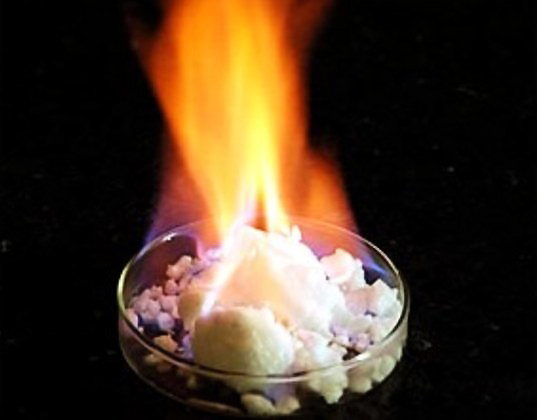 Thermochemistry is the part of thermodynamics that deals with energy exchanges in chemical reactions. Although there are also numerous physical processes that involve heat transfer, such as phase changes and the formation of solutions.
Thermochemistry is the part of thermodynamics that deals with energy exchanges in chemical reactions. Although there are also numerous physical processes that involve heat transfer, such as phase changes and the formation of solutions.
When a chemical reaction or physical process releases heat, it is said to be exothermic. A process will be endothermic when it absorbs heat. The thermodynamic magnitude that measures these energy exchanges is called enthalpy (heat at constant pressure), represented by $\Delta H$
Let's see the example of the combustion of methane:
$CH_4 + 2O_2 \rightarrow CO_2 + 2H_2O$ $\Delta H=-803\;kJ/mol$
This reaction releases 803 KJ/mol under standard conditions at 25ºC. As it is a heat released (exothermic reaction) we consider it negative, and it is the heat released by the combustion of one mole of methane at constant pressure, that is, its enthalpy of combustion.
As a curiosity I want to attach the photo of a burning piece of hydric methane. Hydrogen methane is ice that has methane trapped in its structure, it is stable at low temperatures and high pressures.
There are significant reserves of hydric methane in the permafrost and also on the seabed, being a possible source of energy in the near future.



